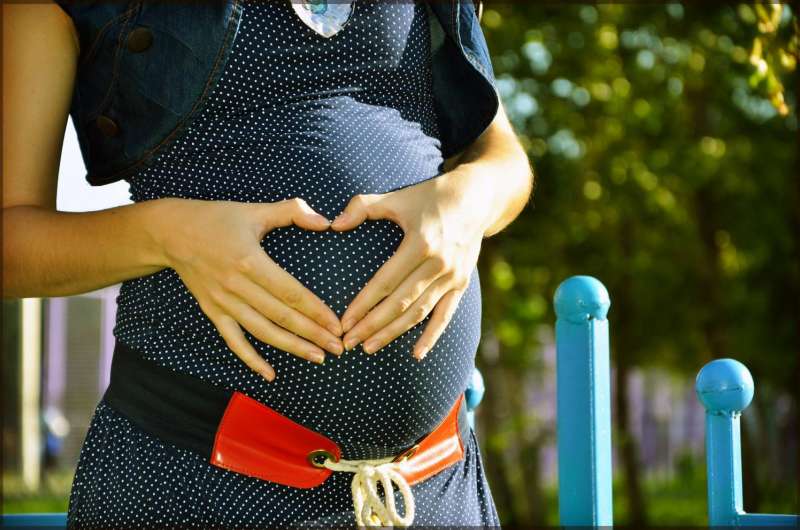Mom may pass bacteria to baby in utero

For decades, it has been accepted that fetal development occurs in a sterile womb. Recent discoveries of bacterial DNA in baby's first bowel movement and in the placenta after sterile C-section, however, have challenged this assumption.
Now, Jörn-Hendrik Weitkamp, MD, and colleagues have examined the presence of bacterial DNA in the intestines and placentas of fetal mice and compared it to newborn intestines and tissues from the mother. They found that the pattern of bacterial DNA in the fetal gut was strikingly different from newborn or maternal stool, but was similar to the microbiome of the placenta and maternal mouth.
The findings, reported in the journal PLOS ONE, provide the first account of bacterial signatures in mammalian fetal intestinal tissue. The results suggest that bacterial DNA moves from the mother's microbiome into the fetal intestine, which may be a critical stimulus for normal mucosal immune development.
More information: Keith A. Martinez et al. Bacterial DNA is present in the fetal intestine and overlaps with that in the placenta in mice, PLOS ONE (2018). DOI: 10.1371/journal.pone.0197439


















